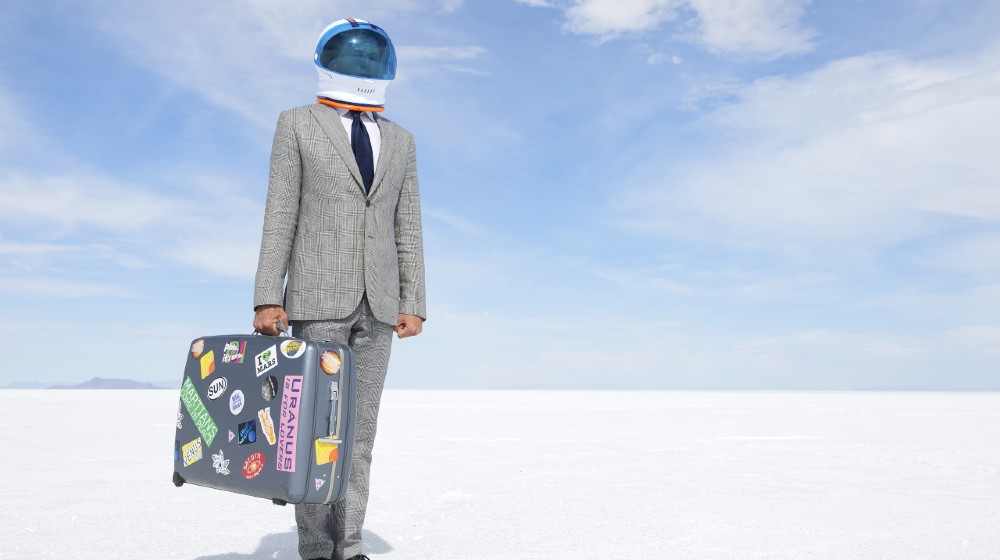News
Democrat Congressman Wants To Tax Space Tourists

A day after Jeff Bezos went into space and back, an Oregon congressman wants space tourists like Bezos to pay taxes for the privilege. This shouldn’t be a problem for Bezos, who thanked Amazon employees and customers for paying for his ride.
RELATED: Richard Branson Is First Billionaire to Reach Space
Tax For Space Tourists
On Tuesday, Representative Earl Blumenauer (D-OR) proposed a tax on space tourists. He explained the reasoning behind his brainchild. “This is potentially going to be a very significant business. Why should a family that is taking kids to Legoland pay a 9.5% ticket tax and other charges on their airline tickets and space tourists who spend a gazillion dollars have tax-free tourism?”
However, Blumenauer said it’s too early to give out details on his tax proposal. He has yet to spell out the tax rate, or even where the space tourists' tax money goes.
Initially, he suggested a two-tiered excise tax for every launch into space. The first tier would apply when the flight reaches between 50 and 80 miles above Earth’s surface. The second tier applies a higher tax for flights that go beyond 80 miles above the surface.
Space Is Not A Tax-Free Holiday For The Wealthy
Blumenauer said that this tax proposal isn’t thumbing down private business initiatives. Instead, he said that things accomplished for entertainment should support the public good. “Space exploration isn’t a tax-free holiday for the wealthy,” Blumenauer said. “Just as normal Americans pay taxes when they buy airline tickets, billionaires who fly into space to produce nothing of scientific value should do the same, and then some,” he added.
“It's meant to be a starting point of a conversation that's important to get ahead of. Perhaps we're already behind,” he said. One thing is clear though: his proposed bill exempts spaceflights made by the National Aeronautics and Space Administration (NASA) for scientific research purposes.
Space Tourists Already Lining Up For Flights
After Blue Origin completed its flight yesterday, owner Bezos said they booked nearly $100 million in tickets for forthcoming space flights. Rival Virgin Galactic, who flew founder Richard Branson 11 days earlier, said they booked around 600 tickets worth $250,000 apiece, or $150 million.
Meanwhile, SpaceX, Tesla CEO Elon Musk’s space company, has a contract with NASA to deliver US astronauts and supplies to the International Space Station. It also plans to launch space tourists into Earth’s orbit. In the future, moon landings are also a possibility. While SpaceX did not disclose any ticket prices, experts estimate each ticket to cost millions.
SPACE Act Tries To Get Off The Ground
Blumenauer’s bill, titled the Securing Protections Against Carbon Emissions (SPACE) Tax Act, won’t hurt businesses. It also won’t force space companies to move to a different country for their launches. “We're talking about something that is not a huge burdensome tax. These are people can afford to pay whatever the tax will be,” he said.
Besides, space tourism all benefited from the US space program funded by taxpayers, he added. In addition, the tax collected from space tourists can help offset the carbon emissions they made during flights.
However, Blue Origin’s rocket used liquid oxygen and liquid hydrogen, which emits water vapor instead of carbon. Blumenauer insisted that even water vapor can cause damage to the ozone layer. Plus, fuels used by Virgin and SpaceX do emit carbon.
Watch the KGW News report where Representative Earl Blumenauer proposes a space tourism tax:
Do you agree with Representative Blumenauer to tax space tourists for every flight they take? Will this help the country and the national space program, or is this just an attempt to get a piece of the action? In addition, where should the tax money go if ever?
Share your thoughts about space tourists and taxation in the comments section below.















